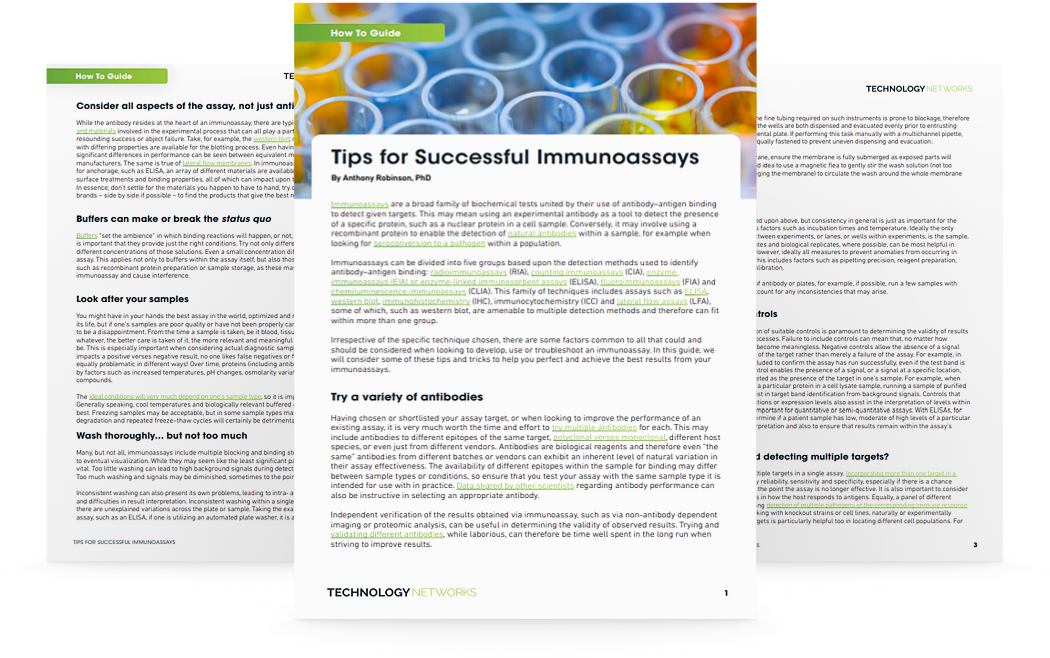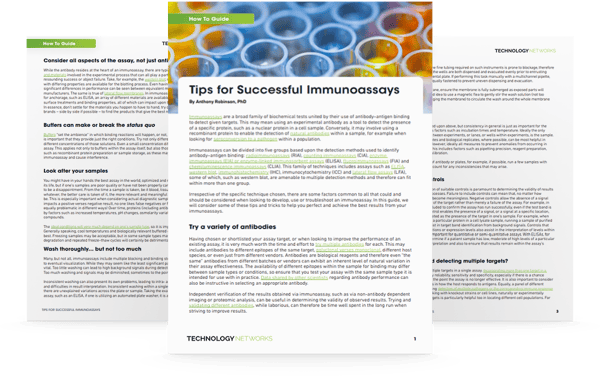
HOW TO GUIDE
Tips for Successful Immunoassays



Immunoassays are a broad family of biochemical tests united by their use of antibody–antigen binding to detect given targets. This may mean using an experimental antibody as a tool to detect the presence of a specific protein, such as a nuclear protein in a cell sample. Conversely, it may involve using a recombinant protein to enable the detection of natural antibodies within a sample, for example when looking for seroconversion to a pathogen within a population.
Irrespective of the specific technique chosen, there are some factors common to all, that could and should be considered when looking to develop, use or troubleshoot an immunoassay.
Download this how-to guide for tips on:
- Choosing the most appropriate antibodies and buffers
- Maintaining sample quality
- Washing techniques
- Detecting multiple targets
- Monitoring assay performance
Sponsored by:
